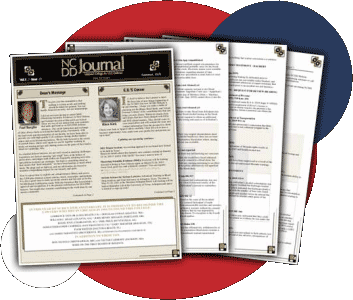- The ABA’s Concise Guide to Lawyer Specialty Certification
- Benefits to Become Board Certified - ABA Video
- Board Certified Members
- How to Become Board Certified in DUI Defense Law
- Apply for Certification
- Apply for Re-Certification Renewal
- Board Certified Senior Specialist
- Rules Governing Board Certification
- Preparing for the Exam
NCDD Store
Books & Materials
Sales to Criminal Defense Lawyers Only

2022 Winter Session Materials (Orlando, FL)
Price: $100
National College for DUI Defense 2022 Winter Session: “LawLawPalooza” A 2-day Festival of DUI Presenters Making Music with DUI Defense Diversity in the Jury Box (ETHICS)-Virginia Landry Breath Testing 101-John Menzel Metrology in SFSTs-Michelle Behan Cross by Omission-Jerald Novak Treatment Courts: DWI Courts, Drug Courts & Veterans Courts (ETHICS)-Doug Hazelton Using Frye to Challenge DRE-Steven Hernandez What My Cousin Vinny Really Means for Trial Lawyers-Andrew Mishlove Risk or Reward: Calling Your Client to the Stand?-Amanda Riek & Matt Olszewski The 4 Factors 4 Fighting 4-ensics-Mike Nichols Persuasive Appellate Advocacy-Michelle Behan Financial Strategies in Your DUI Practice-Jonathan Dichter DUI Trial Triage: A Public Defender’s Journey-Lisa Saltzman & Sylvia Goldman 9 Techniques for Controlling Hostile Witnesses-Michael Waddington Kick Ass Closings-Michael Waddington
Find an Attorney
Enter your city, state, or Zip code below to locate a qualified attorney who has demonstrated a commitment to defend those accused of DUI and related crimes.
FROM OUR BLOG
Ethics Task Force Blog
04/15/2025
Written by Jonathan Dichter The Heart of Client Care: Moving Beyond Case Management In the legal profession, we often talk about "case management" - the systems and processes that keep our cases moving efficiently. But what about *client care*? True client care goes beyond deadlines and filings; it's about treating clients as *people*-scared, uncertain, and in need of guidance. And when done...
Personal Contact: Using the Officer's Observations Against Them
03/10/2025
Written by Charles GoodwinEdited by Michelle Behan and Steven Hernandez The typical DUI investigation has three phases. It begins with the vehicle in motion and focuses on driving patterns that officers are trained might indicate impairment. Next is personal contact, where the officer will observe physical manifestations that are also purportedly correlated with alcohol ingestion and impairment. Finally, the officer will...





